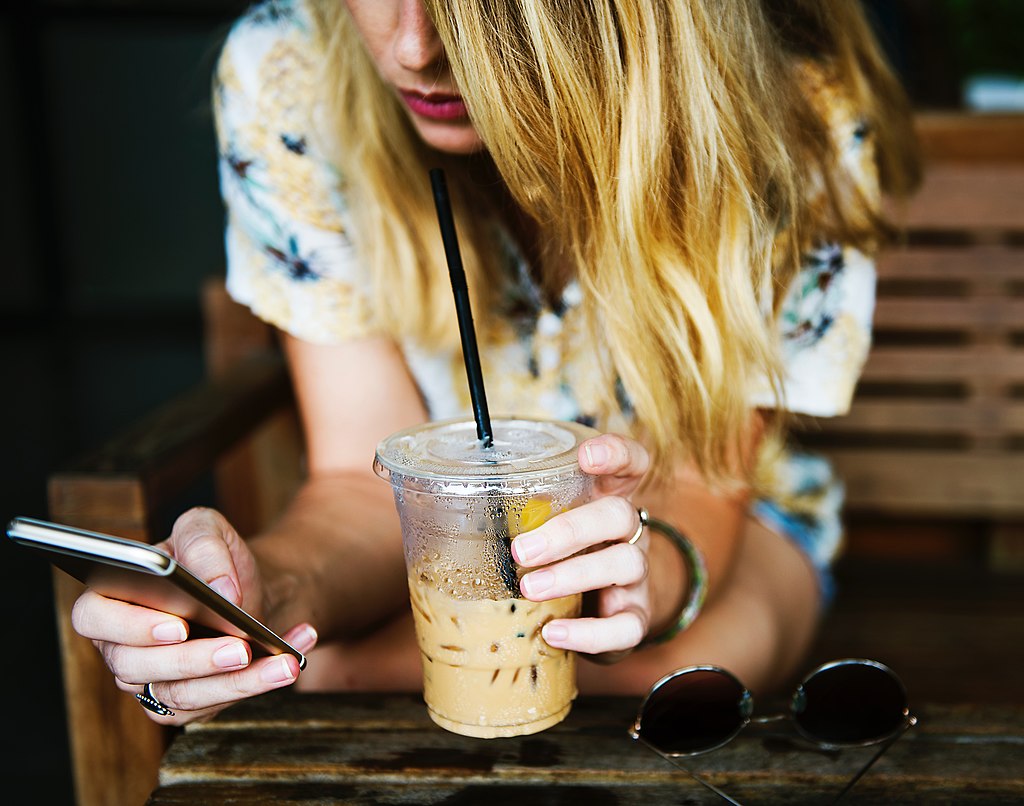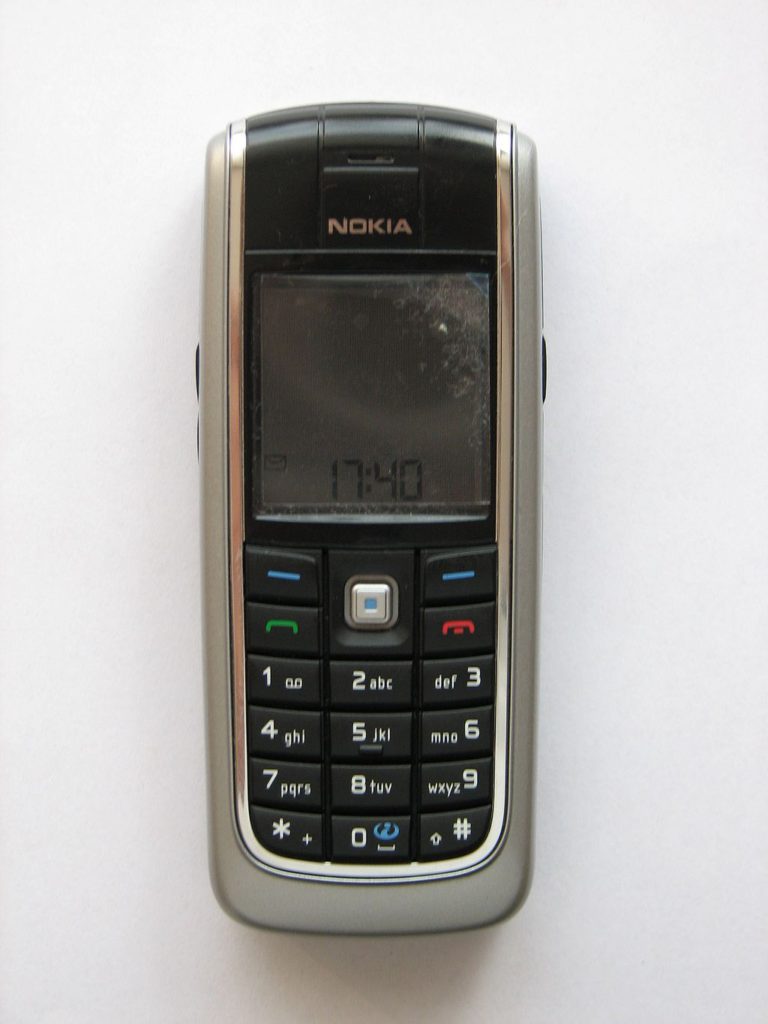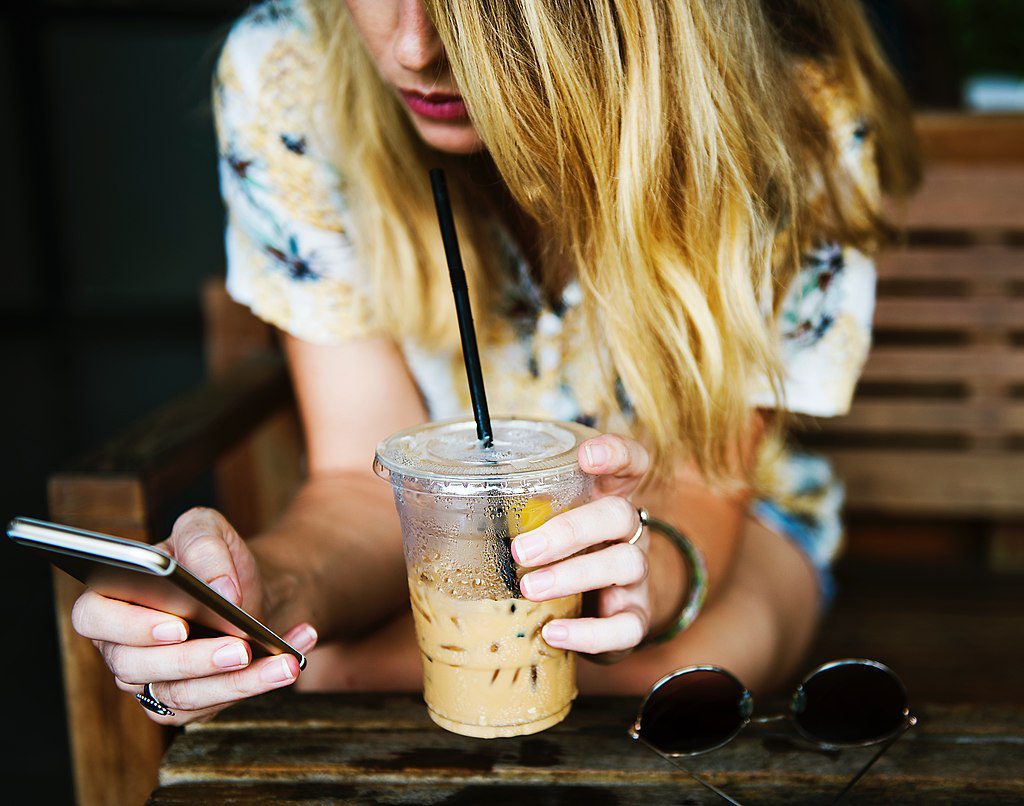The smart choice


At the end of a workshop to kick off a new project, I sat in the cosy brickwork cellar of a trendy restaurant with a group of colleagues. As my children’s bedtime approached, I quickly whipped out my Nokia 6021 phone to send a good night message. While busy, I noticed the researcher next to me eyeing my phone. When I was done, she asked, ‘How on earth do you manage without a smartphone?”
It happens every so often that someone suggests sending me an app, asks me to go to a website on my phone, or check my diary. All I have to do is pull out my dinky old Nokia from my pocket, and they immediately understand that this is impossible. Many people react with incredulity or amused contempt. Others are immediately nostalgic for their own old phones and go into details as to which model was their personal favourite. Surprisingly enough, it is very rare that someone actually questions me about my decision.
I’m attached to my 6021. It’s small and easily fits in my pocket, a huge benefit as I’m not into handbags. The battery goes for days at a time. It has the essential functions – I can phone, and I can send an SMS. In spite of – or maybe because of – my work with innovative technology, I have never been an early adopter of gadgets. I tend to wait until I’m sure a new device is really worthwhile before I get one. Partly it’s because I don’t like the risk of making a wrong purchase, partly it’s a reluctance to make the change. But once the benefits are clear, I’ve always managed to overcome that inertia – satnav, mobile phone, contactless payment.
With the smartphone, though, something is different. The benefits are perfectly clear to me. Just as the satnav in my car redirects me when roads are blocked, a smartphone would be a lifesaver when things go wrong while I am travelling on public transport. I would never again have to ring someone up to plead for directions when I can’t find the restaurant we’ve agreed to meet at. At meetings, I could simply slip my phone out of my pocket to read the agenda, instead of lugging along my laptop. When my daughter is in ecstasy over the present from her aunt that she has just opened, I could snap a picture and send it to my sister straightaway, instead of having to upload it from my camera’s memory card later. So, what holds me back?

It’s certainly not fear that it would be too hard to use. Granted, when someone suddenly thrusts their smartphone into my hands, I tend to have trouble working out what to press, and, when taking photos, it’s a constant battle to hold the slender object in such a way that I neither drop it nor stick my fingers in the picture. But if I can install virtual environments, update kernels and write scripts to process data, then, given time, I can find my way around a smartphone interface. If all else fails, there’s always stack overflow, my knight in shining armour. Nor is it down to fears about privacy. I definitely have those – I shudder at the idea of my private data being gathered and passed along to who-knows-who to analyse and interpret. But that hasn’t stopped me using Google for my travel, email and calendar. Given sufficient convenience, I’m ashamed to say that I find it easy to forget abstract fears about privacy.
While it is indeed fear that holds me back, it’s fear of something else entirely. As I have mentioned in previous blog posts, in the four-colour personality model, I am decidedly ‘blue’. That means that I am precise and introverted. I prefer to think about questions and answer in my own time. I like to plan and structure my activities, to work in a focused way, without interruptions. My home life is separate from my work life, and even within my home life, I allocate time to concentrate on specific tasks – an evening for voluntary work, an afternoon to work on a photo album, a few hours to catch up with friends. Smartphones, unfortunately, seem designed for the ‘yellow’ end of the spectrum, who like to talk, who impulsively jump from one thing to the other and find interruptions a source of creative inspiration. I am afraid that a smartphone would blow a hole in my ordered existence, smashing down the walls and mixing everything together into one big chaotic jumble. Just the thought of the average 63.5 alerts a day, never knowing if a ping is someone moaning on the school app, a meeting being rescheduled, or an urgent message about my child, brings me out in a cold sweat.
At the same time, I am worried that a smartphone would let me indulge my worst ‘blue’ tendencies. At my favourite Wetherspoons chain of pubs, I could avoid all the stress of negotiating a transaction with the bar staff by ordering via their app. When travelling, I would never again have to overcome my shyness to stop a stranger in the street and ask for directions. Instead of idly gazing out of the train window at the rising sun over the mist-covered fields, I could fill my every moment with productive work, preparing and reviewing everything to the nth degree, feeling virtuous and assuaging my fears of not being good enough. No, thank you.

So, how do I manage without a smartphone? Well, just the same way we all managed before they were invented. I plan my journeys before I leave. I agree a time and place to meet people. I download work onto my laptop in advance. I put my out-of-office on and catch up with mails later. If something goes wrong, then there are people – real live human beings – around me who can help. On a recent trip to Liège, I dutifully followed my Google maps print-out, only for a lack of signs to make it impossible to work out which was the right building, or even if I was in the right square. Before I could even start to sweat, a council worker approached me and asked if I was lost. Five minutes later, we were having an animated conversation about Brexit in a mix of broken French and English. I got to my destination on time, and I will never forget that friendly encounter. I have to confess that my boyfriend’s smartphone makes holidays abroad much easier – but I also have the sneaking suspicion that by smoothing our path with maps and google searches, we are also losing the joy of the unexpected.
Having explained all this to my colleague, I expected that she would arrange a polite smile to cover her disbelief of my caveman ways, and move on to another subject. Her reaction was completely unexpected. ‘Do you know’, she said, ‘I’m considering getting rid of mine’. She told me of the stress her smartphone caused her, how hard it was to switch off and just relax. How her work was constantly interrupted. How she was even disturbed late into the evenings. She had tried setting limits, but it never lasted long. The only way to deny the siren call of the smartphone, it seemed, was not to have one.
That seems the perfect solution then, throw away the smartphone, manage without it. Except that the world around us is making it increasingly difficult. More and more, it is assumed that everyone has a smartphone – worse still, that you are your smartphone. Banks prod you to use their apps to pay, and even if you pay using a conventional computer, you frequently need to confirm transactions using – you guessed it – your smartphone. At my work, they recently changed to a new authentication system that required a smartphone instead of confirmation by text. Fortunately for me, there was also the option of a Yubikey. My voluntary group carries out discussions via the group app, and I have to hope they will remember to email me about anything vital. So far, I’m still managing, but how long can I hold out? Hopefully, long enough for two things to happen:
Firstly, that the smartphone user community will mature enough to stop demanding instant reactions, and find a way of allowing each other time and space. It happened with the traditional phone; despite it being technically possible to phone each other at any time, we developed rules of behaviour – don’t call at mealtimes, don’t call after a certain time at night or before a certain hour in the morning, ask if your call is convenient.
Secondly, that I will mature enough to treat the smartphone as a useful tool, not let it dictate my way of life or become a way to hide from the world.
Can we all become smart enough to be the masters of our smartphones? Only time will tell.
Comments (1)
What a wonderful reflection. This critical attitude is what is mostly needed these times. Resisting and questioning, as much as we can!